Into the Forest
We can all agree that this has been rather an unusual year. In many aspects of our lives, this pandemic has changed our plans and shifted our ordinary university life. Although my friends and I were all looking forward to the one-month field trip throughout the European forests, adjustments had to be made. Instead, we completed assignments from the comfort of our homes, missing the experience of studying and working in the forests.
However, there is always light at the end of the tunnel. The new semester at BOKU university provided new challenges, and most importantly, new opportunities. We were suggested by our second-year coordinator to participate in the Field Camp which takes place in the Forest Demonstration Centre – Rosalia. Without hesitation and wholeheartedly, we, the MSc EF students at BOKU, decided to take the course. The decision has been proven to revive and somehow partially compensate the missed field trip experience which was unfortunately cancelled.
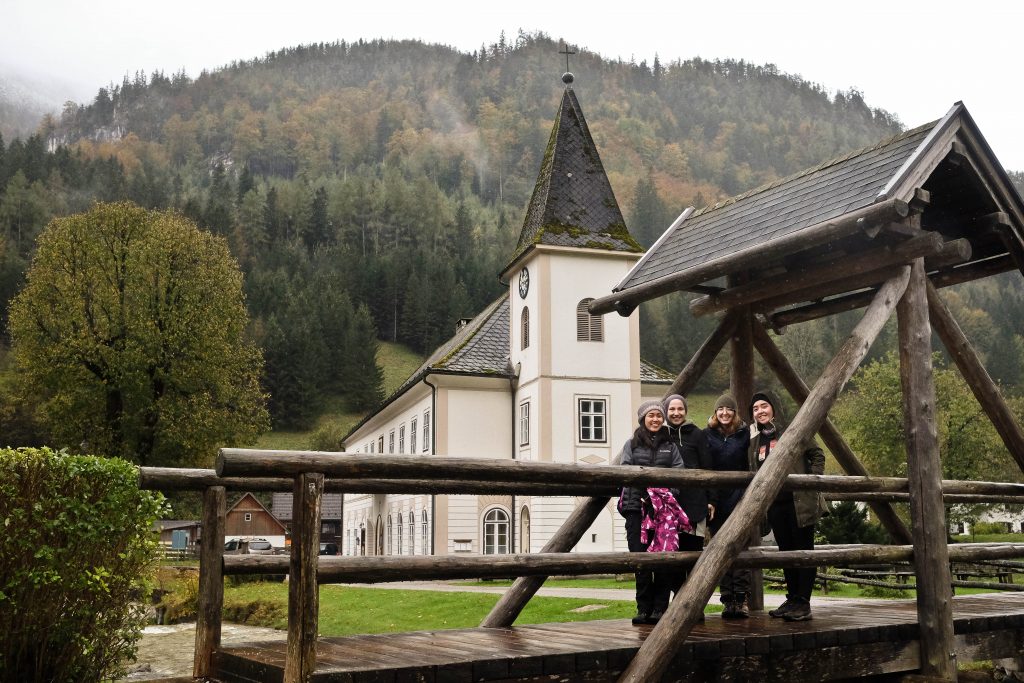
The Field Camp is designed to introduce new students to mountain forestry and forest-related issues in Austria. The course lasted for five days. In order to follow the protocols and ensure safety before the trip, we were all tested for COVID-19 and negative results arrived by the time we were ready to leave to Rosalia. When we arrived at Rosalia, we chose our rooms, got into some comfy clothes, had dinner together, and professor Kirisits gave us a short presentation about forests and forestry in Austria.
Starting with this, we stepped into a week of exploration, enjoyment and most of all, further understanding of Austrian forests. The following day was in the Rosalia centre where we got to know each other, attended lectures and walked into the forest where we were presented the experimental plots which are dealing with drought stress and its effects on attack by the spruce bark beetle.
Like every other day we had dinner together in the evening and on our second day visited the National Park Danube Flood Plain. The excursion at the National Park involved discussions about various issues found in this specific area, but also other parts of Austria. We also got to try some edible plants on the way, before lunch was served.
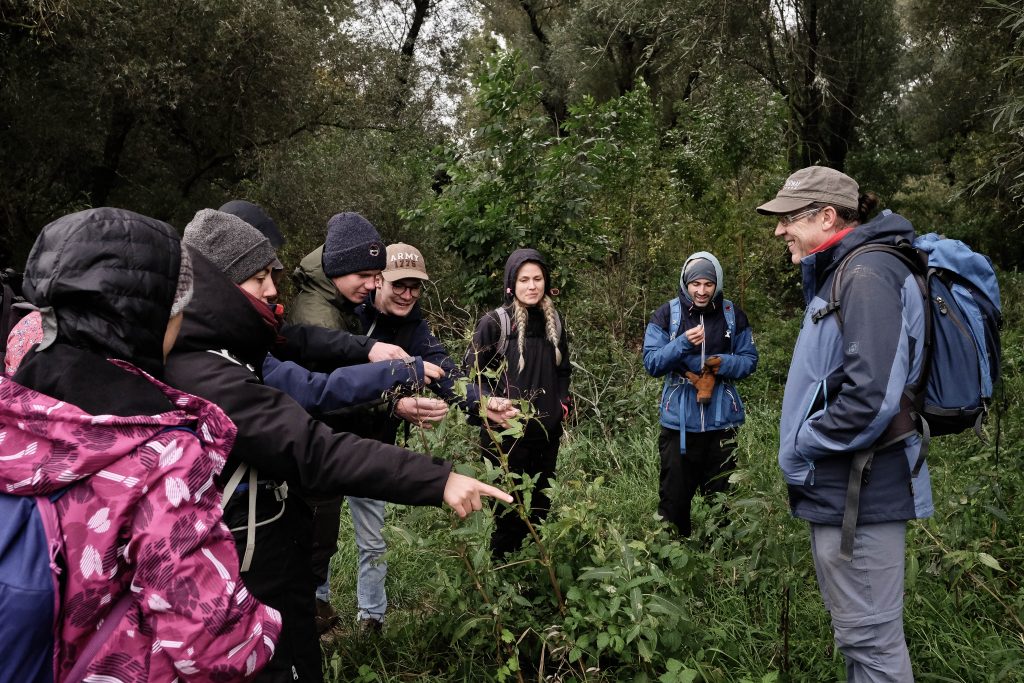
On our third day, we presented different case studies concerning our respective home countries and went for an excursion to the Forchtenstein castle. It was interesting and exciting to learn about different countries and hear various perspectives on the presented topics. We also got to explore the exhibition at the Forchtenstein castle which provided insights on the history of the area but also the history of Austria. After the visit, we were joined by the students from the second year of BOKU’s MSc Mountain Forestry program where we engaged in nice conversations and barbeque.
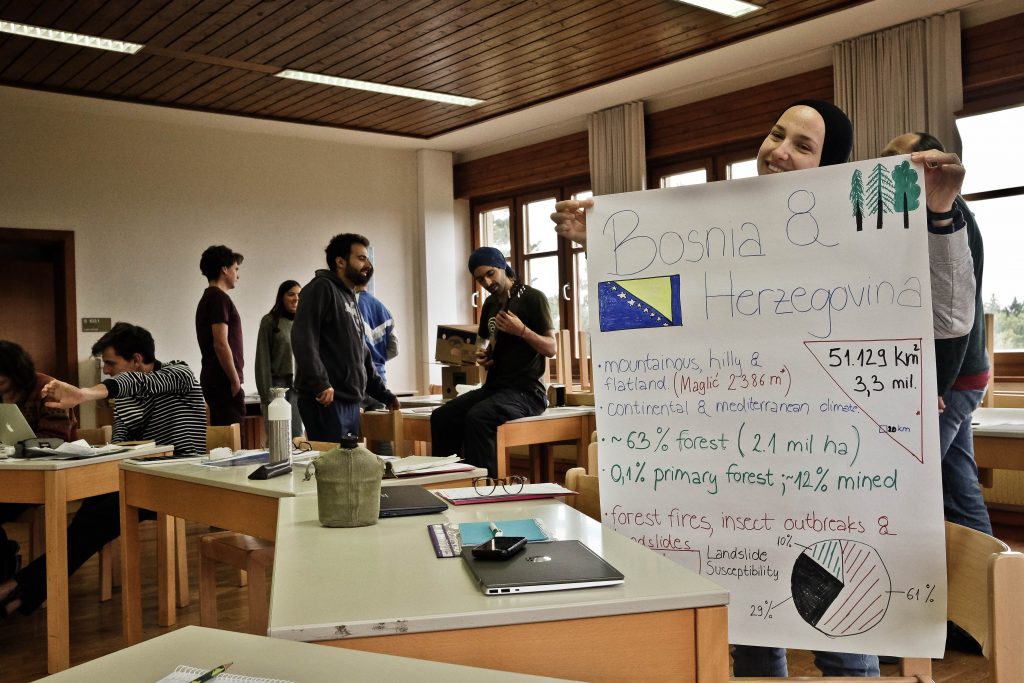
On the fourth day, we had an excursion at the Rax mountain area where we visited the Water Pipeline museum in Kaiserbrunn. The workers there explained to us the importance of multi-purpose forest management strategies for the protection of the drinking water reserves of the city of Vienna. We also got to see the demonstration of a cable crane operation in the mountain terrain. Professor Kirisits showed us examples in the field of ash dieback caused by Hymenoscyphus fraxineus. Moreover, we got to visit the house of forester Georg-Huebmer (Raxkönig) in Nasswald and get an insight of how the wood was transported years ago through the mountain to reach mills.
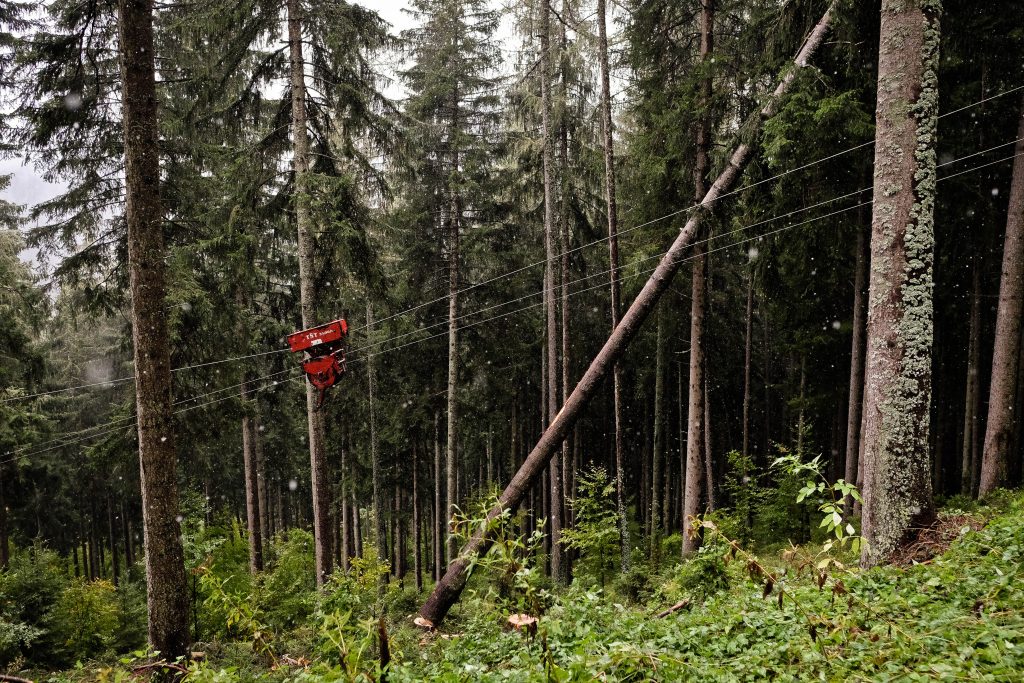
And at last, on our fifth day, we had an excursion and hiking tour at the Rax mountain area in the Northern Limestone Alps. The mountains were full of snow and together with interesting details and information given by professor Kirisits about the various topics concerning this area, we got to enjoy the snow and end the Field Camp in high spirits and looking forward to a successful second year.
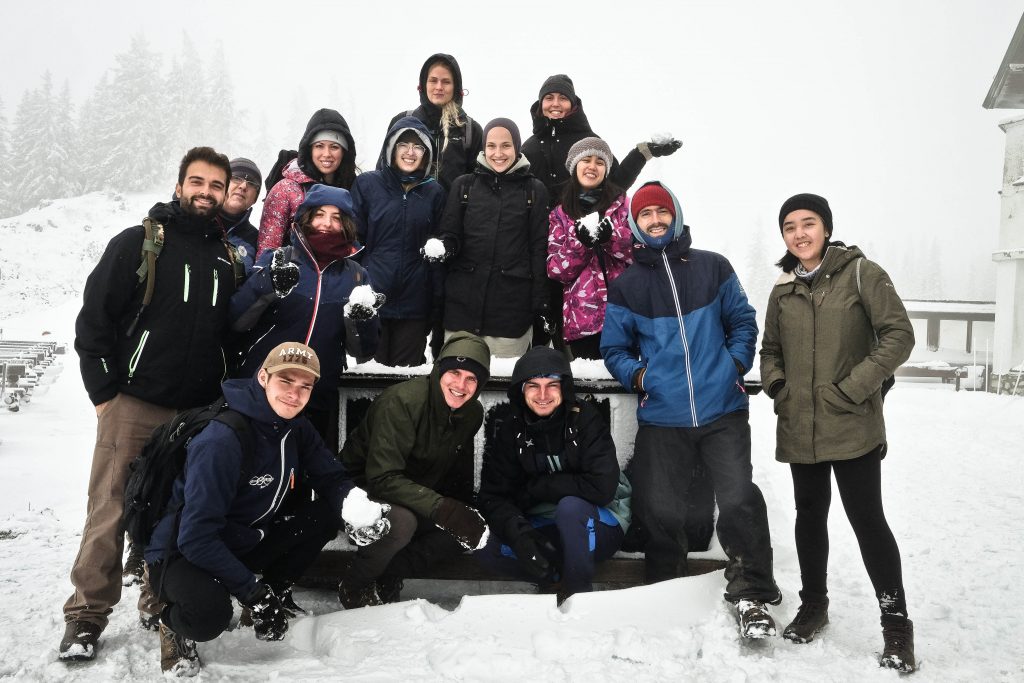
We are so grateful for the joyous times we all had during the Field Camp. It gave us some sort of normality in times when online teaching and social distancing is a norm. The forest, the mountains and above all the sense of human connection allowed us to see the light at the end of the tunnel. 😊
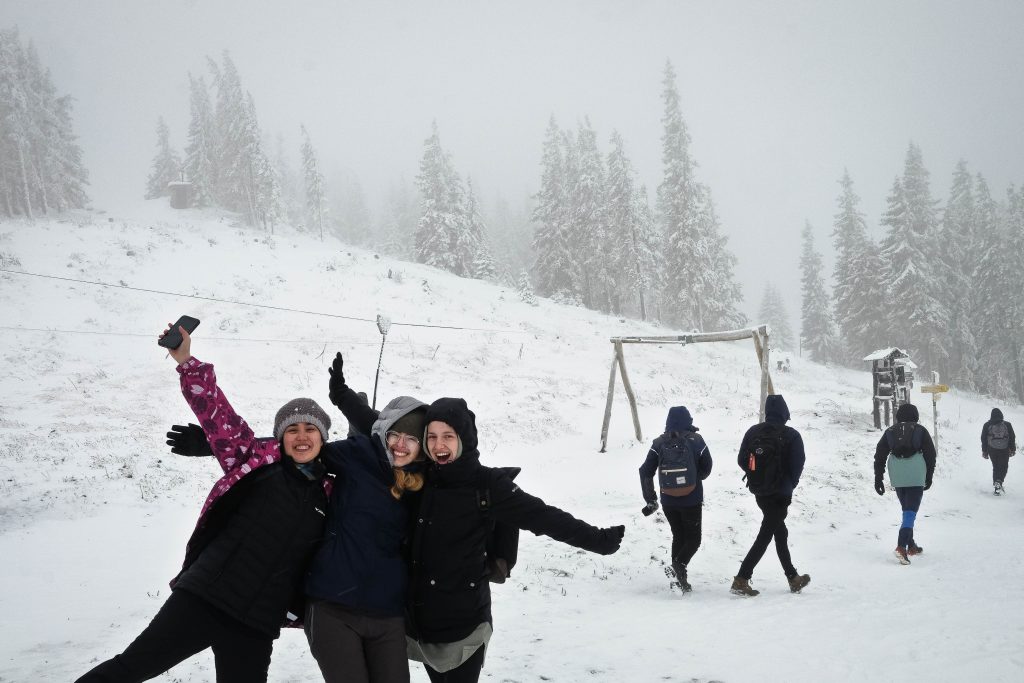
The text has been written by Amina Derlić and photographs were taken by Aine Parlade, both second year students at BOKU university. If you have any questions, feel free to reach them at: derlic2106(at)live.com and aineparlade(at)gmail.com.